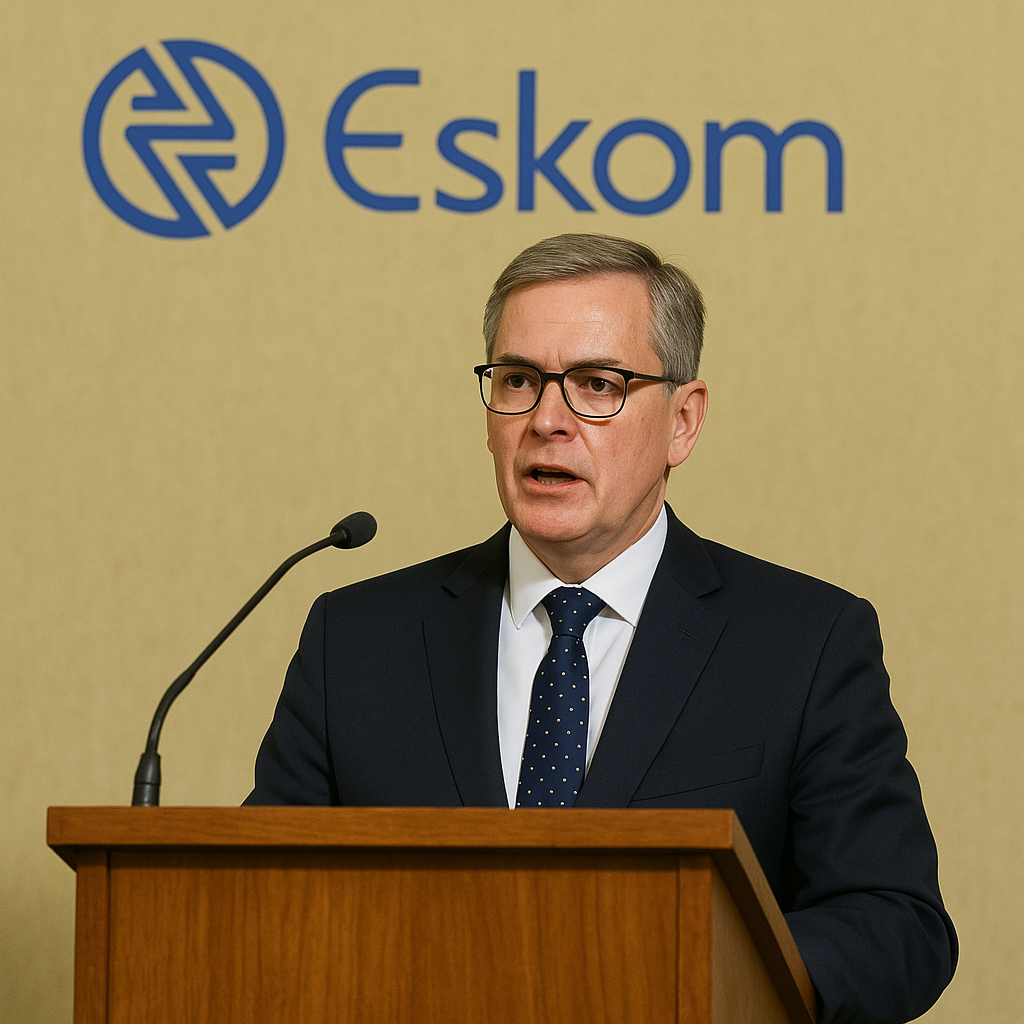Government Warns Eskom: No More Free Pass to Pollute as Reform Delays Persist
The warning comes just days ahead of the Minister’s expected announcement on Eskom’s high-stakes application for exemptions from minimum emission standards (MES).

- Country:
- South Africa
In a firm and pointed message to South Africa’s embattled power utility, Eskom, the Minister of Forestry, Fisheries and the Environment, Dr Dion George, has drawn a hard line on emissions compliance and energy reform. In a statement issued on Wednesday, George made it clear that Eskom’s current path of non-compliance with minimum emission standards, coupled with its sluggish transition away from coal dependency, is no longer tolerable.
The warning comes just days ahead of the Minister’s expected announcement on Eskom’s high-stakes application for exemptions from minimum emission standards (MES). Eskom has been seeking extended timelines to retrofit or decommission its aging coal-fired power stations, many of which continue to exceed pollution thresholds, contributing heavily to air pollution and greenhouse gas emissions in the country.
“Government cannot grant Eskom a blanket waiver to continue polluting without accountability,” said George. “South Africa is facing a crossroads—one where we must choose between continued environmental degradation and a responsible, future-focused energy system.”
Balancing Energy Security with Environmental Rights
George acknowledged the difficult balancing act between ensuring reliable electricity supply and upholding the constitutional right to a healthy environment. However, he stressed that energy security cannot come at the expense of public health and environmental integrity.
“South Africans have already endured too much—rolling blackouts, rising electricity costs, and economic stagnation all tied to Eskom’s inefficiencies and outdated infrastructure. These failures are not just technical; they’re environmental and economic,” he said.
The Minister highlighted the severe consequences of unchecked emissions, including respiratory illness, environmental degradation, and loss of agricultural productivity. Regions such as Mpumalanga, where Eskom’s emissions are most concentrated, have some of the worst air quality in the world, with significant implications for public health.
End of the Monopoly Era: Reform is Non-Negotiable
According to George, Eskom’s near-total control over electricity generation and transmission has hindered South Africa’s energy transition, slowed renewable energy uptake, and limited private sector participation. He reiterated government’s position that unbundling the utility is essential to unlocking a resilient and competitive electricity sector.
“The only viable path forward is to unbundle Eskom without further delay,” said the Minister. “South Africa cannot remain hostage to a failing monopoly. We need a fair, open energy market where renewables and new players can thrive.”
He called for the immediate operational independence of the National Transmission Company of South Africa (NTCSA), Eskom’s newly formed transmission subsidiary. While the NTCSA recently began trading, critics have raised concerns that full functional and legal independence has yet to be achieved.
“Transmission reform is not just bureaucratic—it's the foundation for fair grid access, which is vital if we are to bring more renewable energy projects online. Without this, we’ll remain overly reliant on failing coal plants,” George stated.
Just Energy Transition Must Be Accelerated
George’s comments reinforce growing government frustration over delays in Eskom’s commitment to South Africa’s Just Energy Transition (JET) strategy. The JET plan, supported by billions in international climate finance, is meant to help Eskom and other sectors shift toward cleaner energy sources while protecting workers and communities during the transition.
“The transition to renewable energy is not negotiable,” George said. “South Africa’s economic future depends on more renewable energy entering the grid, not less. The world is moving toward cleaner energy, and South Africa cannot afford to be left behind.”
He added that Eskom must act with urgency to decommission its worst-performing power stations—particularly those that fail to meet environmental standards and contribute disproportionately to pollution. These closures, George emphasized, must be carried out in a structured and inclusive manner to avoid social and economic fallout.
“Those stations must be retired in a way that does not leave communities and workers behind. Responsible decommissioning is a moral and environmental imperative,” he said.
No More Delays or Excuses
The Minister concluded with a stark warning: if Eskom continues to delay reforms and defy emissions regulations, it will face consequences.
“This is not an empty threat. Government will not allow South Africa’s energy future to be dictated by outdated infrastructure, mismanagement, and a lack of urgency. Eskom must either comply with emissions regulations and accelerate its transition—or it will face the consequences,” he said.
George reaffirmed government’s commitment to building a “future-proof” energy system—one that delivers affordable, reliable electricity, drives economic growth, protects public health, and meets international climate commitments.
As the country awaits next week’s decision on Eskom’s emissions exemption application, the message is clear: the era of unchecked pollution and monopolistic inertia is over. The spotlight is now on Eskom to meet its responsibilities—or step aside.
- READ MORE ON:
- Eskom
- Dr Dion George










